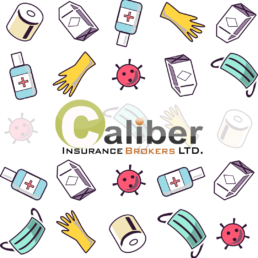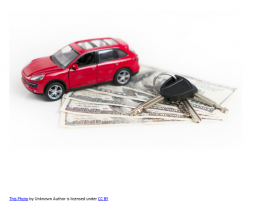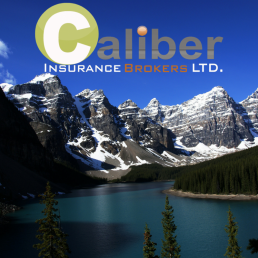COVID-19 Update
Dear friends and clients,
We are living in unprecedented times, but we are facing these challenges and uncertainties together. As a business, the Caliber Insurance Brokers team is working to do everything we can to continue to be there for you, providing the high level of service you are accustomed to.
For those of you who currently hold insurance with us, are awaiting a quotation, or are about to get your new policy, we are still here for you and we are taking all the necessary precautions in order to fulfill these duties safely.
With the information we have regarding COVID-19, we are taking the necessary and appropriate steps to keep everyone's health and safety a top priority. One of those steps is to limit contact, as such we have shortened our hours to 10-4, Monday-Friday, and our offices are currently closed to the public as we do our part to encourage social distancing by working 100% remotely.
Through email, phone, or video, we can provide you with updates on current market conditions, rates, and set up action plans to ensure you are receiving all the services you need. Our team has ensured that each one of us has fully equipped home-offices set up to continue serving you, our valued clients, at full capacity.
The health of our clients, our team, and the general public are our highest priority, and we urge you to join us in focusing on the health and safety of our community during these trying times. As per the Government of Canada:
Together, we can slow the spread of COVID-19 by making a conscious effort to keep a physical distance between each other. Social distancing is proven to be one of the most effective ways to reduce the spread of illness during an outbreak.
This means making changes in your everyday routines to minimize close contact with others, including:
- avoiding crowded places and non-essential gatherings
- avoiding common greetings, such as handshakes
- limiting contact with people at higher risk like older adults and those in poor health
- keeping a distance of at least 2 arms-length (approximately 2 metres) from others
Proper hygiene can help reduce the risk of infection or spreading infection to others:
- wash your hands often with soap and water for at least 20 seconds, especially after using the washroom and when preparing food
- use alcohol-based hand sanitizer if soap and water are not available
- when coughing or sneezing:
- cough or sneeze into a tissue or the bend of your arm, not your hand
- dispose of any tissues you have used as soon as possible in a lined waste basket and wash your hands afterwards
- avoid touching your eyes, nose, or mouth with unwashed hands
- clean the following high-touch surfaces frequently with regular household cleaners or diluted bleach (1 part bleach to 9 parts water):
- toys
- toilets
- phones
- electronics
- door handles
- bedside tables
- television remotes
If you are a healthy individual, the use of a mask is not recommended for preventing the spread of COVID-19.
Wearing a mask when you are not ill may give a false sense of security. There is a potential risk of infection with improper mask use and disposal. They also need to be changed frequently.
However, your health care provider may recommend you wear a mask if you are experiencing symptoms of COVID-19 while you are seeking or waiting for care. In this instance, masks are an appropriate part of infection prevention and control measures. The mask acts as a barrier and helps stop the tiny droplets from spreading you when you cough or sneeze.
Most importantly, stay positive and continue to support each other. We can and we will get through this together, growing closer and stronger as a community.
The Caliber Insurance Brokers team is still here to answer any questions you may have, so please don't hesitate to reach out, even if it's just to chat.
You can do this. Take care and stay safe.
-The Caliber Insurance Brokers team
8 Ways to Lower Your Auto Insurance Premiums
Auto insurance premiums seem to go up every year. We wrote a post on why they go up. But can you do anything about it?
You sure can! Here are 8 things you can do to keep your premiums as low as possible:
1. Intact's MyDriving Discount
Are you a young driver under age 25 or a new driver? Intact recently launched the MyDriving Discount which tracks your driving patterns with their new app. You can click here to learn more. Depending on your coverage, you can get a 10% discount when you sign up. After that, the discount can be as high as 25%.
2. Go with a higher deductible
When you have a claim, the deductible is the amount that you pay. If you have a $500 deductible and your claim is for $1,300, then you pay the first $500 and the insurance company pays the other $800.
A higher deductible means you won't put in small claims. And those small claims really add up for the insurance company! Ask your insurance broker how much you'd save with a higher deductible. It might be worth it!
3. Not using your vehicle for a few months? You can 'park' it
If you plan on not driving your vehicle for a few months, your broker can remove the Liability and Collision coverage on the vehicle. You keep Comprehensive coverage, which covers the vehicle from fire, theft, hail or vandalism. This can save you a lot of money! Keep in mind: You can't 'park' a vehicle that's on public property or if its financed.
4. Watch out for the extras
Aside from Liability, Collision and Comprehensive, you can get extra features on your policy. Some of those features (like Accident Forgiveness) can be a really good idea. However, if you never plan on renting a car or driving someone else's car, you may not need SEF27 Extension to Non-Owned vehicles. Take a moment to ask your broker what coverages you have. You may be paying for something you don't want!
5. Pay annually for your insurance
When you have monthly insurance payments, you are paying interest. Although its not crazy, most insurance companies charge 3% or 4% interest for monthly payments. If you can pay once a year, you'll avoid that charge.
6. Make sure you have the best rating
Did you start driving outside Alberta? Check out our post on how out-of-province drivers can save money when they move to Alberta. Some insurance companies give you a better rate when you're married and for certain occupations.
7. Credit consent
Insurance companies now take your credit score into account when quoting. Make sure you give your broker consent to let the insurance company pull your credit history. It's a "soft" credit check that won't negatively affect your score. It can save you a few hundred bucks! Don't worry - if your credit score isn't good, they won't count it against you and charge you more.
8. Combine your auto and home insurance
Whether you own a home, condo or rent a place - you need property insurance. Insurance companies give big discounts and free features when you combine your home and auto insurance together.
[ninja_form id=2]
Moving to Alberta? Here's the best way to save a bundle on car insurance
If you are new to Alberta and you were driving in your home province, state or country - learn how to get the lowest rate available.
Driving History and Insurance History
In Alberta, insurance companies set your rate based on a few things:
- When you were first licensed
- Convictions in the last 3 years
- Suspensions in the last 6 years
- Claims in the last 8-10 years
When you are first licensed and insured in Alberta, we get this information from 2 places:
- Your driver's abstract, also referred to as a Motor Vehicle Report (MVR)
- Your insurance history, which is kept by Autoplus. You can check out Autoplus here
Why Does This Matter?
Maybe you've been driving for years before moving to Alberta with a clean record - no claims or speeding tickets. You're a good driver: so why is the insurance company quoting you such a high premium?
They just can't take your word for it - they need some documentation. They need proof.
If you have 9 years of clean driving, you'll pay a much lower rate than if you have 2 years. Calling the "cheapest" company won't help if they don't give you any credit for those 9 years. The difference between 9 years and 2 years can be over $1,000 a year!
Getting a copy of your driver's abstract and claims experience letter might seem like a hassle, but it could save you a bundle.
Your Driver's Abstract and Claims Experience Letter
Insurance companies need 2 things from you:
- Your driver's abstract, also referred to as a Motor Vehicle Report (MVR). It's issued by the province, state or licensing authority. It lists when you were first licensed and if you've had any convictions or suspensions. Most licensing authorities have a website and the order form. Below you'll see the links to some of them. You'll need to know your driver's license number and they'll ask you some personal information. Expect to pay about $15 to get a copy.
- A claims experience letter from the insurance company. It needs to be on company letterhead and will show when you were added and removed from the policy. It should list all claims and whether you were at-fault or not at-fault.
To get a copy of your claims experience letter, the insurance company needs your policy number. Keep that number! You should always keep a copy of old insurance policies with the number. They won't charge you a fee for this report.
If you've had insurance from a few companies, you'll need letters from all of them. We need to figure out if you've had continuous insurance history - or if you've had a gap.
Not All Insurance Companies are the Same
- All companies will take history from the Canadian provinces
- Most will take history from the United States
- A few will take history from all other countries
If you're moving to Alberta from outside Canada or the US, get a quote from a company that recognizes your history. All of the companies we deal with will count it!
Moving from Ontario or the Maritimes
If you're moving to Alberta from these provinces, you're in luck - we do things the same way. Keep your driver's license number. We'll need it to pull your Autoplus report. For your driver's abstract, here are the links:
- Ontario https://www.ontario.ca/page/order-drivers-record
- Nova Scotia https://novascotia.ca/sns/rmv/licence/abstracts.asp
- New Brunswick http://www2.gnb.ca/content/gnb/en/services/services_renderer.200564.Driver_Records.html
- Prince Edward Island http://www.gov.pe.ca/photos/original/tpw_dr_abstract.pdf
- Newfoundland http://www.servicenl.gov.nl.ca/drivers/DriversandVehicles/driverlicensing/abstract.html
You might have to pay $15 or so - but you'll only need to do this once. The abstract will show convictions in the last 3 years and any suspensions.
Moving from British Columbia, Saskatchewan or Manitoba
These 3 provinces manage your license and your insurance. When you request a copy of your abstract, you'll also get claims experience information on that report.
- British Columbia http://www.icbc.com/driver-licensing/getting-licensed/Pages/Your-driving-record.aspx
- Saskatchewan https://www.sgi.sk.ca/abstract-details
- Manitoba https://www.mpi.mb.ca/en/DL/DL/Records/Pages/drv-records.aspx
Moving from Quebec
Although Quebec works the same way as Alberta, we can't access Quebec Autoplus reports. You'll need to request your abstract from SAAQ and your claims experience letter from your insurance company.
Moving from the United States
If you're moving to Alberta from the US, it works basically the same. You'll request your abstract your state DMV (Department of Motor Vehicles) or the DPS (Department of Public Safety). You'll also need a claims experience letter from your insurance company. Here are a few links:
- Texas https://www.dps.texas.gov/DriverLicense/driverrecords.htm
- Colorado https://www.colorado.gov/pacific/dmv/purchase-motor-vehicle-record-mvr-letter-clearance
- California https://www.dmv.ca.gov/portal/dmv/detail/online/dr
- Virginia https://www.dmv.virginia.gov/general/#records/drive_record.asp
If you google your state with 'drivers abstract', you should be able to find out where to request the report.
For your claims experience letter, you'll need to know what insurance company (or companies) you had and your policy number. Make sure to keep that information!
Moving from All Other Countries
Before you get to Canada, get a copy of your driver's abstract from your local licensing authority. It will need to be in English, or you can have it translated into English.
You'll also need a claims experience letter from the insurance company. Don't forget - it needs to be on company letterhead!
Here are a few countries that have driver abstracts:
- United Kingdom https://www.gov.uk/view-driving-licence
- Australia - New South Wales https://www.service.nsw.gov.au/transaction/request-driving-record
- Hong Kong https://www.police.gov.hk/ppp_en/05_traffic_matters/tcr.html
- Germany https://www.kba.de/EN/ZentraleRegister_en/FAER_en/Auskunft_en/faer_auskunft_node_en.html
How Far Back Do You Need to Go?
Some insurance companies look at the past 6, 8 or even 9 years. You don't need history from 1985, but back to 2007 is enough to get the best rate possible.
In Alberta, we also use something called the grid. We use your abstract and claims experience to figure out your grid rating and the best is -15. This can be very important if you have an accident later on and it was your fault.
A little work can save you a lot of money
In my experience as an insurance broker, I get calls from people who have been driving for years in another province or country, but they are paying way too much. This wasn't explained to them, or they didn't know that it could make such a big difference.
It is a bit of work, but to save $1,000 a year on your insurance for the next 6 years really adds up!



